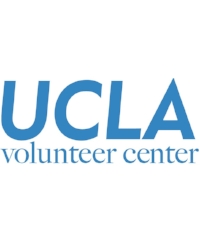The Inertia: "How Spearfishing Evolved from Hunting to a Sport Leading the Conservation of Marine Environments"
/Article originally appeared in The Inertia on March 7, 2018
Spearfishing is older than civilization itself. It’s one of the earliest known methods of catching a truly fundamental food source. Without fish, the growth and development of the human species would have been severely stunted. And while other means of fishing have been known for millennia, spearfishing has played a major role in humanity’s relationship with marine life.
The concept of spearfishing as an actual sport didn’t really surface until the early 20th century. Before then, a spearfisher wasn’t an athlete. He (or she) was a hunter in the traditional sense of the word. It was all about providing nutrients. Although to be fair, the concept of bragging rights can also be traced back to hunter-gatherer societies.
It wasn’t until divers in the Mediterranean began crafting innovative fins, masks, and snorkels that underwater hunting became recreational. It was around this time that the speargun was first introduced. Much like land-based recreational hunting, spearfishing quickly turned into a sport focused on using a gun to catch the biggest possible prize. Jay Riffe, legendary spearfisher and founder of Riffe International Inc., notes that “with bigger, more powerful spearguns, there is an increased desire to land bigger, better fish.” Riffe has witnessed firsthand a surge of new spearos taking up a sport that used to be fairly unrecognized.
Southern Californian frogmen like Jay Riffe, Jack Prodanovich, Wally Potts, and Bob Meistrell expanded American recognition of the sport throughout the 40s, 50s, and into the 60s. They ventured further and deeper than those that only thought of diving as a “hobby”. They pushed spearfishing beyond the realm of sport and transformed it into a way of life. By developing and designing Americanized improvements on European equipment and spending endless hours in the water, these fishermen helped foster a heightened love for the ocean and its seemingly endless offerings.
However, therein lied a major issue. Back then, the oceans appeared to be a bottomless bucket. The competitive elements of spearfishing led underwater hunters to focus primarily on catching large quantities of fish with less regard for sustainability. And while natural conservation was a widely-accepted necessity in the mid-20th century, the effects of pollution and overfishing were far less of a concern than they are today. Riffe remembers a time when he and his fellow spearos would “target reef fish and enjoy a healthy quantity.” Nowadays, these fishermen are advocates for a much more selective type of fishing.
In more recent times we’ve started to see an entirely different attitude toward spearfishing and marine-life in general. These days competitive spearfishing actively seeks to improve and restore depleted and mistreated underwater environments. As Riffe notes, “the oceans seem to have become a little smaller.” He advocates for a more selective and sustainable approach to the sport. After all, most fishermen would like to see future generations be able to take part in their practice. In Riffe’s words, spearos should always “fish for the future.”
Sure, it might seem like helping fish populations could never go hand in hand with hunting them. But when done responsibly and with the proper amount of respect for the water, a spearfishing competition can provide valuable awareness and a deepened understanding of humanity’s impact on our beloved ocean.
This is why Damien Salerno, owner of the James & Joseph spearfishing shop, did all that he could to help establish the Jack White Seabass Open in honor of the late legend Jack Prodanovich. Salerno’s shop is currently a sponsor of both the Jack and the Kirk McNulty White Seabass Spearfishing Classic. As an avid spearfisher and industry professional, Salerno is very familiar with the positive impact that the local recreational community can have on the environment. He personally derives most of his satisfaction from the sport by being able to “catch [his] own food.”
Nowadays, there’s a concerted effort to make spearfishing less about bragging rights given to whoever can catch the biggest fish. It’s becoming more about building a community and culture of respect, hunting conservatively, and giving back to the ocean. And this is exactly the type of mentality that Skip Hellen and Joe Farlo are attempting to promote as members of the board of directors for the International Underwater Spearfishing Association.
As a member of the board, Farlo and Hellen both voted to stop giving divers record-based awards for catching critically large species of fish. This was a fairly controversial decision because the vote involved fish that weren’t necessarily endangered. As Farlo notes, “we’re making a statement by making them ineligible.” That statement suggests that all humans need to think a few steps ahead when interacting with our oceanic neighbors. It’s an active game of balance and requires a concerted effort to think about upcoming generations. As a lover of marine life and a father of four soon-to-be spearfishers, Farlo is clearly considering the future of the ocean.
And that brings us back to the Kirk McNulty White Seabass Spearfishing Classic. The tournament is an ecologically friendly contest that honors the legacy of Kirk McNulty. The tournament advocates for selective hunting and seeks to spread awareness of sustainable uses of our oceans. This year, the Kirk McNulty Classic runs until April 30th and a $29.20 entry fee is required prior to spearing a fish. The $29.20 number represents the costs that it takes to raise, tag, and release two white seabass according to Hubbs-SeaWorld Research Institute (HSWRI). Clark McNulty, one of the organizers of the tournament says, “We wanted there to be a direct correlation between the registration fee of the tournament and the cause we are supporting. Participants can feel good that each of them are reintroducing life back into our ecosystem.”
These tournaments also feature a healthy range of age and skill-level for their competitors. Oceans Global, the host of the Kirk McNulty Classic, recommends always diving with a partner, no matter how many years of experience you have. This is the 5th annual tournament to memorialize Kirk and the respect he had for the ocean. The White Seabass is the prize of both tournaments due to its elusive nature and sensitivity to changes in light and sound. In short, it is an extremely difficult fish to catch, making it all the more interesting. This goes hand-in-hand with Jay Riffe’s comments about shooting for “quality over quantity”. It’s a quality fish that takes patience and dedication to catch. While its populations have suffered in past decades, the competitive and sustainable fishing of the White Seabass raise awareness to the fishing industry as a whole and ends up doing far more good than harm.
The HSWRI, along with the Ocean Resources Enhancement and Hatchery Program (OREHP), has been at the forefront of experimental hatchery science and White Seabass replenishment since the early 80s. Breeding, raising, and releasing fish requires sophisticated infrastructure and understanding of the biological and ecological implications involved. The HSWRI needs support and your participation in these competitions will truly make an impact.
The OREHP, with which the HSWRI is partnered, is a global model for fish stocking programs and the only operation of its kind on the West Coast of North America. They focus on breeding and raising White Seabass until they are juveniles. The fish are then distributed to 13 grow-out centers up and down the West Coast. These grow-out centers raise the fish until they are ready to be released into the wild.
In 1982, the OREHP produced the first experimental release of 2,000 White Seabass in Mission Bay, California. By December of 2006, they had released over 1.2 million fish into the Pacific. Their efforts continue to lead the way for modern oceanic conservation and the replenishment of vital fish populations.
With these tournaments, selective and sustainable fishing can actually help long-term efforts to restore White Seabass populations. If you’re a spearfisher and want to become a member of a growing community of ecologically minded watermen, enter to compete in a tournament. Get in the water, raise awareness, and give back to the ocean. It’s amazing what can be done when we promote respect for our natural resources. In the words of Jay Riffe, “Dive safe and smart, and most importantly, have fun!”





